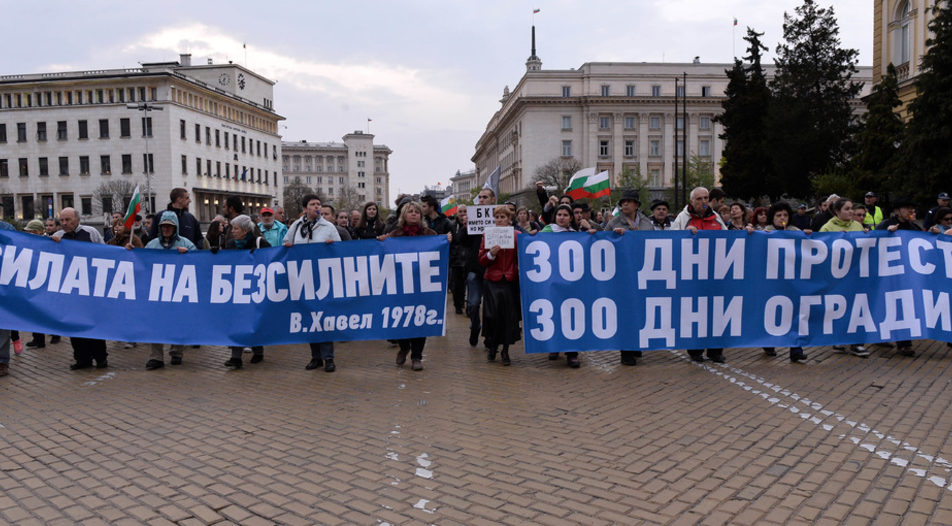Bulgarians often complain that unlike Greeks, Romanians or French their fellow citizens don't protest strongly enough and hence fall prey to exploitation by the political class or greedy businessmen. The avalanche of protests over the past year, starting with the Save Pirin campaign and concluding with the protests of mothers of children with disabilities, as well as dozens of smaller protests in between, proves otherwise.
Even though Bulgarian civil society hasn't held huge anti-government marches like those in Bucharest, Belgrade and Skopje over the past few years, it has proved itself capable of pressurizing the authorities and achieving its goals.
Yet, before citing examples, we should note some specificities of Bulgarian civic engagement:
- And, more importantly, Bulgarians rarely protest to remove the root causes of their problems - the politically dependent judiciary, the declining education system or the chaotic style of government.
Yet, when Bulgarian citizens unite, they can achieve a lot - sometimes in opposition to the authorities, sometimes despite their actions and at other times - in spite of their incompetence. Here are six cases to prove it:
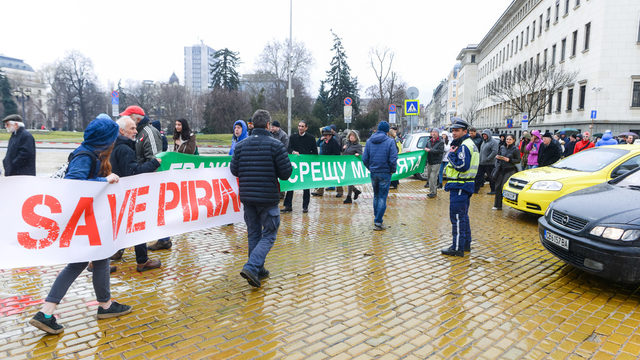
Defending environmental causes: the Save Pirin Campaign
Bulgarians rightfully take pride in their country's natural endowments, so there's little wonder that some of the longest-running and most resonating causes are environmental. The most vociferous opposition against the Communist regime back in the 1980s started as a protest against trans-border air pollution in the Danube town of Ruse.
Recently, one particular eco cause dwarfed them all - the protection of Pirin National Park, a UNESCO heritage site, from the advances of politically well-connected interests linked to First Investment Bank owner and Bulgarian Ski Federation president Tseko Minev. For years, Mr Minev and the company linked to him that runs Bansko ski resort in the northern part of the mountain - Yulen, have pressed to relax the rules governing the management of the national park. In the current government of Prime Minister Boyko Borissov, they have found more than enough support for their plans, including from the self-professed pro-business (former) Vice-Premier Valeri Simeonov, and Environment Minister Neno Dimov who denies the existence of climate change. Both pushed through an amendment to the rules on the management of Pirin National Park that would have allowed changes to the managerial plan of the park without the mandatory environmental assessment. The amendment was adopted at the last meeting of the government for 2017 just before the New Year holidays, probably in the hope that the changes would pass unnoticed.
Yet they didn't. The news spread immediately throughout the network of environmental groups and first protests were scheduled for days immediately following the holidays. Thousands took to the streets of Sofia in weekly marches to the government headquarters and the Environment Ministry building lasting for over two months. Thousands of Bulgarians from dozens of cities nationwide and from abroad joined by marching either to their respective town halls or the embassies of Bulgaria. In the meantime, legal aides to the environmental activist bodies filed a lawsuit against the government's decision. It took the Bulgarian judiciary a year to overturn the decision, with the Supreme Administrative Court practically banning new construction works in all the country's national parks.
The victory of the Bulgarian eco-activists exemplifies both their strength and their limitations. Unfortunately, they manage to gather only in response to certain controversial business or political plans and fail to unite, get constructive and negotiate for an environmentally-friendly development of Bulgarian natural heritage sites. This is understandable, considering the entire state machine supports a friendly oligarch, yet it does not help them take the fight to the next level.
The Greens Party remains but a tiny political force and, alongside other eco-organizations, is vilified by the media arm of the political-oligarchic complex as "eco-Talibans", and is accused of resisting national interests and the development of the state. To successfully move on, environmental activists need to find a way to break this gridlock.
The battle for clean air: How a civic group raised awareness of air pollution
April 4, 2017, was a big day for all those trying to tackle air pollution in Bulgaria. The European Court of Justice ruled that the authorities had neglected the problem and not done enough to solve it; meanwhile, a group called AirBG launched a monitoring network entirely based on a citizen-led initiative. Sofia and other cities in the country have long struggled on account of the lack of reliable data on air pollution. Municipalities and the government's Environment Agency fail to provide their constituents with a full picture of the cocktail of dust and harmful chemicals they are breathing. No live set of data was available to give at least a relatively good idea of air quality 24/7. Thus, the pressing need for a more detailed picture. And so a group of citizens took the issue into their own hands. The catalysts for establishing AirBG were Stefan Dimitrov and Nikola Lulchev who met online and became friends because of their shared concern about poor air quality and its impact on their families' health. The project's prototype - Luftaden, came from Germany with AirBG successfully incorporating the model in Bulgaria. The platform is based entirely on volunteer work - from those who "adopt" the sensors in their homes to the IT team who keep track of the data around the clock. Sofianites can now buy a home-installed sensor and keep tabs on the air they are inhaling for just 80 levs(less than 40 euro). The sensors measure PM10 and PM2.5, the two main types of air-polluting particles. They also consider factors like temperature, atmospheric pressure and humidity. AirBG also partners with logistic companies who transport the sensors from Germany and then within Bulgaria for free. Dimitrov says that the platform makes 500,000 measurements in the country every single day. The number of stations in Sofia has reached 500 since its launch less than two years ago, and there are more country-wide. Even though the data is not absolutely correct at all times and has some deviations, it has succeeded in making the issue visible to the wider public. It has been cited as the leading contributor to raising public consciousness about air pollution in Bulgaria. AirBG's urge to battle air pollution with more information and awareness has pushed institutions to act on the issue. The Ministry of Environment and its Executive Environment Agency has decided to partner with the platform. They have placed an AirBG sensor next to each of the agency's official monitoring stations in Sofia and it turned out that the results were quite similar. Yet, despite the civic network sending its data to the agency, neither the state institutions nor the Sofia municipality, currently use it. This is probably the next goal for AirBG.
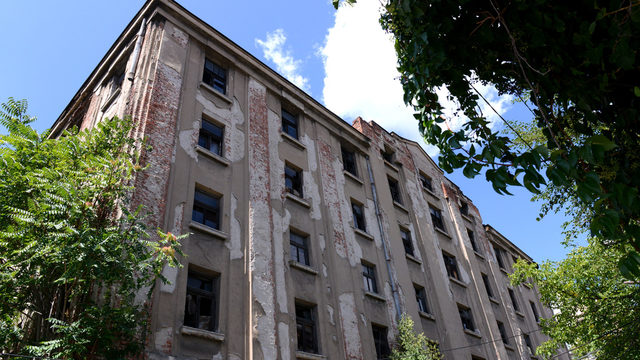
Protecting heritage: Plovdiv Tobacco City
In the period between its liberation from Ottoman rule in 1878 and its fall to Soviet dominance in 1944, Bulgaria (and especially its bourgeoisie) developed rapidly, accumulating wealth by integrating into the international capitalist economy. Often, with the profits it reaped, it invested in beautiful architecture that has stood the test of time and Communism until the 1990s. Then, the poorly managed process of restitution of property back to the families of the original owners of many beautiful historic buildings led to legal deadlocks - and ultimately, to decay. The newly restored former owners didn't have the means to maintain the buildings, while the local governments didn't spend resources on protecting the most valuable architectural gems in their regions. The attempts to salvage this heritage are another example of citizens' activism, with the case of Plovdiv Tobacco City standing out.
The Tobacco City in central Plovdiv represents a conglomerate of about 20 buildings previously used as tobacco warehouses and cigarette factories. Yet, the split of ownership rights among dozens of individual inheritors in the 1990s, and the lack of public or private interest in maintaining and overhauling those buildings, led to their practical abandonment - a ghost city amidst what was soon to become the European Capital of Culture for 2019. A suspicious fire broke out in 2016, almost destroying one of the buildings, a former tobacco warehouse. While a homeless person who allegedly used the abandoned building as a shelter was blamed, the fire raised suspicions that the property's owners had opted to erect a new building at the site rather than renovating the old one. The destruction of the old warehouse attracted enormous public interest to the entire Tobacco City, with people taking to the streets in defense of Plovdiv's architectural heritage. Plovdiv 2019, the municipal foundation overseeing the preparations for European Capital of Culture, rode the wave of public enthusiasm and moved its headquarters to one of the warehouses, opening up rehearsal studios for the city's philharmonic orchestra, art spaces and exhibition halls. The Tobacco City became a focus of the 2019 European Capital of Culture program, with public discussions, events and festivals being scheduled around the semi-abandoned factories. While it's too early to say whether all this will have a long-lasting effect on its state, as there are still many private interests involved, the case exemplifies another way citizens can be brought together.
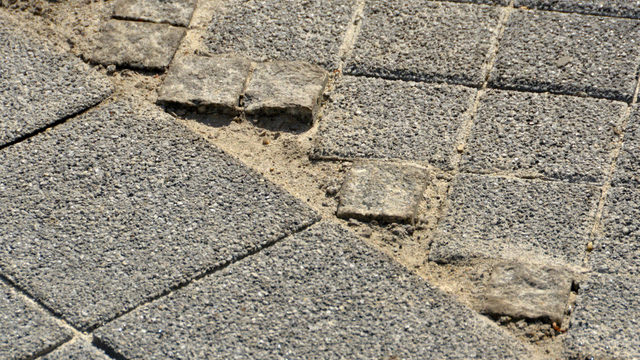
Mismanaged Public Works: the Graf Ignatiev case
Bulgarians are becoming ever more demanding when it comes to how their taxes are being spent. This is the lesson Sofia Municipality has learnt in the past six months, as an incessant wave of public outrage and mockery enveloped the 12-million euro project to revamp the Graf Ignatiev Street and the adjacent St Sedmochislenitsi Church square in the city centre. An online meme war under the hashtag #HUBAVOE ("It's pretty") was waged by well-known Sofianites over Facebook, highlighting the disastrous state of the repair works as they were slowly unveiled to the public.
Initially, Sofia Mayor Yordanka Fandakova had said in October that citizens just needed to wait until the completion of the works (the deadline has been extended twice since then), but later changed her tune, admitting the repairs were indeed poorly carried out. She also said that the company carrying out the overhaul - GP Group, a large infrastructure firm famous for winning many large-scale public infrastructure tenders - could be fined up to half a million euro for the poor quality of the works and by up to 125,000 euro per day for each day the works ran over schedule.
What is more, a rare resignation of an official responsible for carrying out the tender ensued, with the deputy mayor for transportation Evgeni Krusev stepping down in December after the State Prosecution launched a probe into the rules of the procurement. The company was forced to "repair the repairs" under greater scrutiny and Sofia citizens could celebrate a minor victory - until the next large-scale procurement scandal.
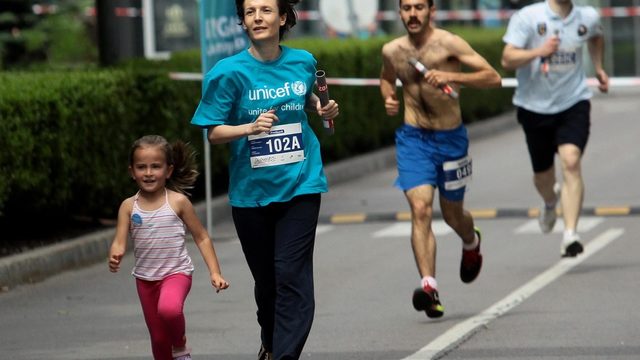
Mass sport: Where the state fails, citizens do it Despite some world-class achievements in sports like gymnastics and volleyball, the overall level of Bulgarian sports has declined significantly in recent decades and one of the main reasons has been the dwindling culture of mass sport. Sponsored by the state during the Socialist period, nowadays Bulgarian sporting federations are funded in accordance with their closeness to political circles rather than their international achievements or the number of people they subscribe.
But in such times enthusiastic and self-driven citizens and amateur sportsmen join hands and start organizing sporting events. After a gradual start, the number of participants has expanded exponentially, attracting those who want to get fit and generating business. One clear example of that is long-distance running.
Until a decade ago this discipline was all but unknown in Bulgariа but with the emergence of several cornerstone events, including Tryavna Ultra and Vitosha 100, ultra-marathons started getting trendy. Now one can see hundreds of people joining such races across the country - over 2,500 joined the 99-km long trail run around Vitosha Mountain last May.
Apart from promoting exercise, such events create something even more valuable - social capital.
This is quite visible outside of Sofia, like in Ruse, a city of 150,000, where a small community is organizing weekly running events for some 50 people, as well as several annual races around the region that attract runners - and guests - from across Bulgaria and abroad. One of these races, Canyon Creek Ultra, was launched in 2017 and its participants increased from 300 to 700 in just a year. Not only did these runners enjoy the beautiful scenery of the 90-km long race alongside the Lom River gorge a stone's throw away from Ruse, but they also brought their families, giving a boost to local tourist attractions and the region's economy. And it all happened without a single lev of public investment.
Bulgarians often complain that unlike Greeks, Romanians or French their fellow citizens don't protest strongly enough and hence fall prey to exploitation by the political class or greedy businessmen. The avalanche of protests over the past year, starting with the Save Pirin campaign and concluding with the protests of mothers of children with disabilities, as well as dozens of smaller protests in between, proves otherwise.
Even though Bulgarian civil society hasn't held huge anti-government marches like those in Bucharest, Belgrade and Skopje over the past few years, it has proved itself capable of pressurizing the authorities and achieving its goals.








